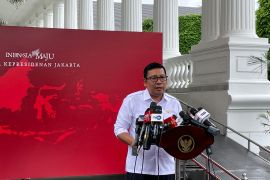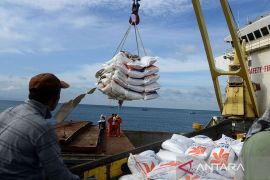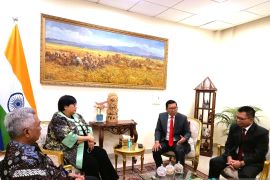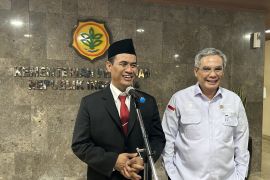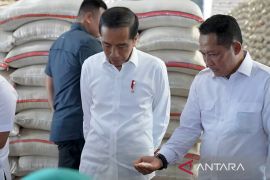"Rice price has the deciding factor. If it is not stable, the poverty rate will go up. So the imports prevent the price and poverty rate from rising and needs can be met," he said at the Vice Presidential Office here on Friday.
Rice price plays a deciding role in the peoples life and thus, the government has the obligation to stabilize it, he said.
"The problem is that we have to stabilize rice price because it plays a deciding role. No matter whether the rice is imported from Pakistan or elsewhere, we must have sufficient stocks," he said.
Trade Minister Thomas Lembong said earlier the government is looking into the possibility of cooperation with Pakistan to import rice from the country.
"The process is going on. We have signed a MoU with the Pakistani government (to import rice) under a government to government partnership. Right now the state logistics agency (Bulog) is studying technical details of rice stocks in Pakistan," he said.
The Central Statistics Agency (BPS) said on Monday that the number of Indonesians living in poverty rose by 780 thousand to 28.51 million in September 2015, from 27.73 million in September 2014,
The number of poor people rose significantly during the September 2014-March 2015 period due to a fuel price hike in November 2014 and the impact of economic slowdown, BPS Chairman Suryamin said.
"Compared to September 2014, (the number of poor people) in September 2015 rose by 0.78 million," he said.
According to BPS data, the inflation rate in the September 2014-March 2015 period was recorded at 4.03 percent, with rural inflation reaching 4.4 percent over the same period.
Compared to September 2014, rice prices rose 14.48 percent to Rp13,089 per kilogram and farmers exchange rate weakened by 1.34 percent in March 2015.
However, he added that the number of residents not belonging to poor category began to increase in March 2015 after the governments social program was implemented.
The decline was also the result of the governments efforts to anticipate inflation in March 2015, he said.
Therefore, the number of poor people dropped by 80 thousand during the March 2014-September 2015 period.
"Admittedly, if we look at data in September last year, the number of poor people did increase but if we look at data in March 2015, it declined," he said. (*)
Editor: Heru Purwanto
Copyright © ANTARA 2016



